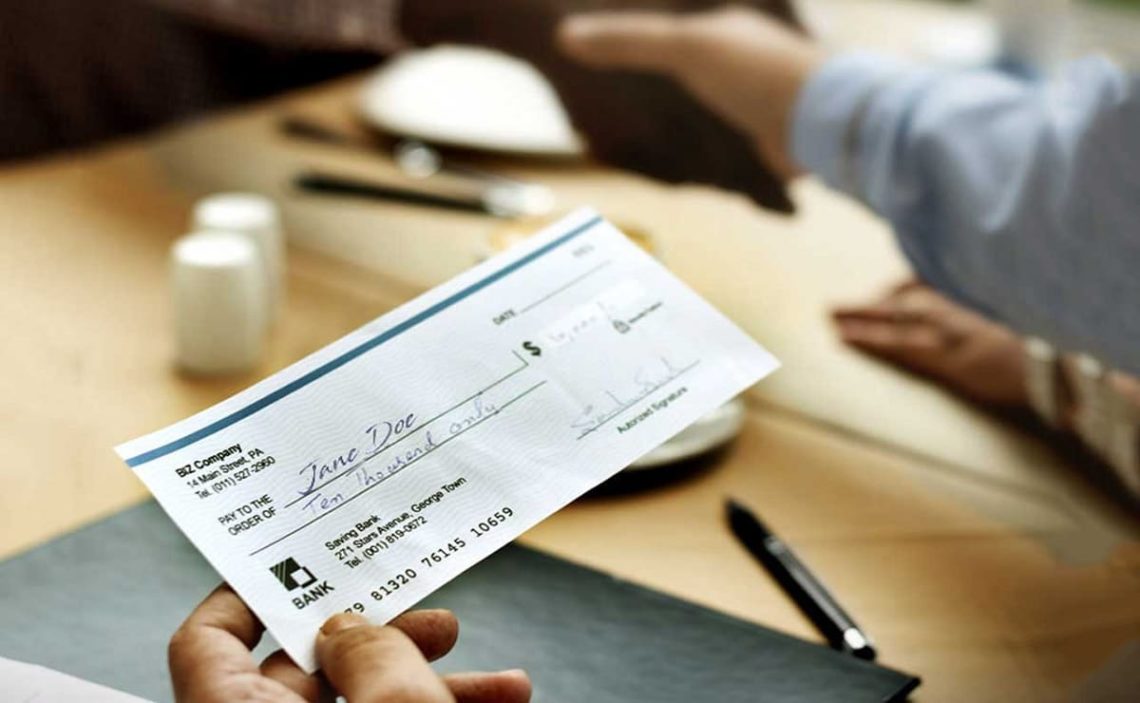It is quite common for companies or corporations to receive payments by check. If the payment is made to an account holder, there is no major problem; the real inconvenience may arise if the check is issued to a company.
Cashing a commercial check varies considerably according to several factors, from the type of company to whether it has a bank account. Therefore, many people wonder how to cash a commercial check.
How to cash a business check depending on the type of business?
Businesses are divided into several types, depending on the number of employees, their purposes, and the number of owners. Therefore, cashing a check is different when the company is of one type or of another.
In addition, the following should be clarified: the two procedures mentioned in this section are applicable when the company has its own bank account. When it does not have a bank account, the process is different.
Sole Proprietorship
Sole proprietorships are those where the owner and the company are single entities. Although the company is not considered a person, both are considered one entity for legal purposes.
When a check is issued for a sole proprietorship, the owner is the only person entitled to cash the check. That is, it cannot be cashed by third parties or persons close to the company.
It works similarly to a personal check; sit down at the bank where the check will be cashed, present it and wait for the check to be deposited in the account or cashed out.
When the company has its registered name, and the name is not the same as its owner’s; it must have a DBA (Doing Business As) registration.
The DBA is a way of telling banks and the public that you are the natural person behind your company’s name and its maximum representative. This way can cash the check without any problem.
Partnerships, corporations, or LLC
For companies with more than one owner, the process is slightly different, and depending on the bank where the collection will be carried out, it can be more or less complicated.
First, the check can only be cashed by the owners of the business account to which the check is designated. That is, only those signatories of the bank account have sufficient authority to cash the check.
One of these persons must present themselves at the bank and generally carry an identifying document, such as a driver’s license, passport, state identification, etc.
Also, before delivering the check, the signer must sign the back with their name, title, and signature to cash the check. All three must be similar to those registered on the bank account.
All of the above is applicable if the bank allows the payment of a commercial check because not all have this option available. If it is not allowed, you must use another method of cash withdrawal.
The most viable method to withdraw the money immediately in a bank where direct check cashing is not allowed is to deposit the check directly into the account and withdraw the money if available while waiting for the withdrawal.
If you do not have the amount of the check deposited in your bank account, it will be impossible to withdraw the money from the check immediately; you can only make the deposit and wait for the check to clear. It usually takes 2 to 5 business days.
How to cash a business check when the company does not have a bank account?
The procedure can be quite different when the company does not have a bank account. Fortunately, there is more than one valid option.
Requesting collection at the check payer’s bank
For commercial checks, it is practically always valid to cash them even if you do not have a commercial bank account. It is necessary to go directly to the check sender’s bank to complete the process.
As you might imagine, the check writer must have enough money in his account to cash the check. If the account does not have the necessary money, it is impossible to carry out the process.
Once at the bank, the beneficiary must present an identification document. There are several options for this. It can be a driver’s license, military ID, state ID, alien ID, passport, etc.
In addition, most of the time, for not being a bank customer, the beneficiary is charged a fee that could vary depending on the bank’s commissions. It usually does not exceed $8.00.
Using retail stores
Several retail stores, such as Kmart, Kroger, Walmart, Fred Meyer, Ralphs, etc., allow the cashing of business checks in exchange for a particular fee set by each store.
Fees may vary depending on the store and the check amount. Some may have fixed fees, and others may charge a percentage fee.
Prepaid debit cards
Several prepaid deposit cards allow the deposit of business checks to be used with the card’s morning charges. This way, it is possible to deposit the check on the card and cash it through a withdrawal.
Depending on the bank that requested the prepaid card, the check deposit requirements may differ.
In some cases, it is necessary to show up with the check at the bank; in others, it may be enough to take a picture of the check within the card application to validate it and deposit the money on the card.


